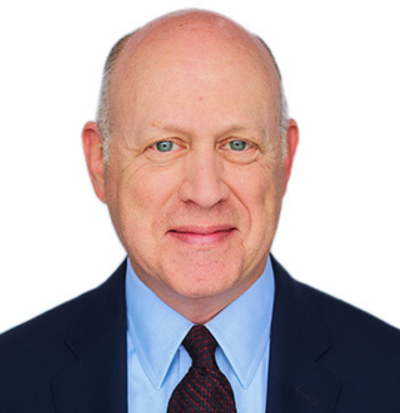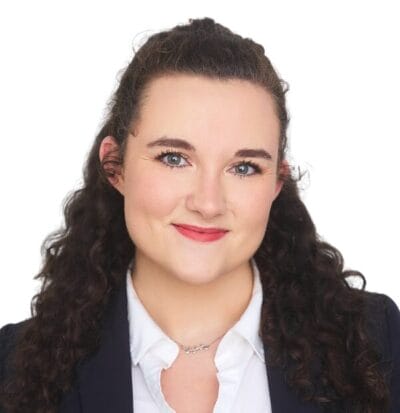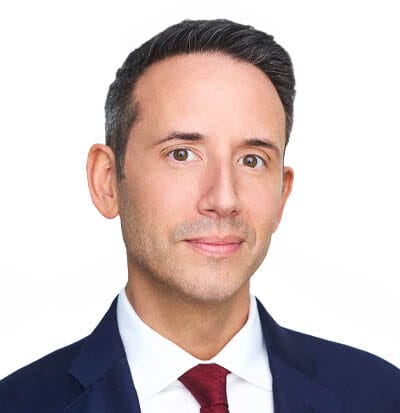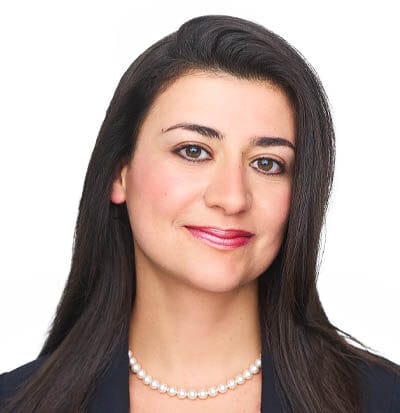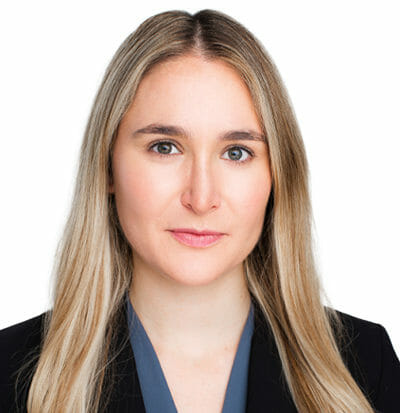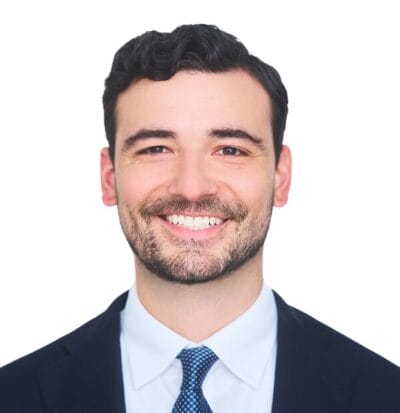USA – U.S. Supreme Court: Successful trademark infringement plaintiff cannot recover profits from a non-party affiliate of the defendant.
Dewberry Group, Inc. v. Dewberry Engineers Inc., No. 23-900, February 26, 2025.
Dewberry Engineers owns a registration for DEWBERRY for real estate services. It sued Dewberry Group, which also used DEWBERRY for real estate services. The trial court found Dewberry Group liable for willful trademark infringement and awarded the plaintiff profits not only of Dewberry Group but also of the Group’s corporate affiliates, even though they were not named as defendants. Dewberry Group had no profits, but its operating affiliates had substantial profits. The district court treated Dewberry Group and its affiliates “as a single corporate entity” in calculating a profits award, and the Fourth Circuit affirmed. A unanimous Supreme Court reversed and remanded for “a new award proceeding.” Justice Kagan’s opinion relies on settled law that “separately incorporated organizations are separate legal units with distinct legal rights and obligations.” Since Dewberry Group was the sole defendant, only its profits were recoverable. The Court rejected the plaintiff’s argument regarding the following provision in Section 35(a) of the Trademark Act: “If the court shall find that the amount of the recovery based on profits is . . . inadequate . . . the court may in its discretion enter judgment for such sum as the court shall find to be just . . . .” 15 U.S.C. § 1117. The Court said neither the trial court nor the Court of Appeals relied on the quoted language. The decision may be found HERE.
USA – U.S. Court of Appeals for the District of Columbia Circuit: DC Circuit Affirms Copyright Office decision that a work created solely by AI is not copyrightable.
Thaler v. Perlmutter, No. 23-5233 (DC Cir. March 18, 2025).
Stephen Thaler, a computer scientist, invented the “Creativity Machine,” which autonomously created an image called “A Recent Entrance to Paradise.” Thaler applied for a copyright registration, listing Creativity Machine as the author and himself as the copyright claimant. The Copyright Office refused to register the image, saying that, under longstanding rules, an author must be human. Thaler sought reconsideration in the Copyright Office and, when that was denied, sued in the District Court, which granted summary judgment to the Copyright Office. The DC Circuit affirmed, saying “As a matter of statutory law, the Copyright Act requires all work to be authored in the first instance by a human being.” Although the Act does not define the word “author,” the court pointed to numerous provisions in the Act, such as limiting the duration of copyright to “the life of the author and 70 years after the author’s death,” as referring to human beings, not machines. The court noted that its decision was limited to cases in which the AI is listed as the sole author; the Copyright Office has permitted registration where the human author was assisted by AI tools. The decision may be found HERE.
DATA PRIVACY
U.S. District Court for the Southern District of New York – CIPA “Pen Register” Cases Dismissed
The U.S. District Court for the Southern District of New York recently issued opinions dismissing Xu vs. Reuters News & Media Inc. and Gabrielli v. Insider, Inc., two cases brought under the pen register provisions of the California Invasion of Privacy Act (“CIPA”).
Plaintiffs in these cases sought to extend the CIPA (enacted in 1967) beyond telephonic communications by arguing that the collection and sharing of their internet protocol (“IP”) addresses with third parties via online trackers installed on their browsers constituted a violation of the CIPA. They likened these online tracking technologies to “pen registers,” which are devices physically installed on a telephone line to log the outgoing telephone numbers dialed out from that line, but not the content of the communications.
The district courts dismissed both cases for lack of standing, holding that plaintiffs had not suffered concrete and particularized injuries because IP addresses cannot typically be used, without additional data points, to identify particular individuals. The courts noted that, at best, IP addresses alone may convey high-level geographical information, such as a zip code, and function on their basic level as a link between a browser and website arising from a website visitor’s voluntary request. Accordingly, implicit in the courts’ findings is that, in the context of CIPA pen register claims, website visitors have no reasonable expectation of privacy in their IP addresses.
Despite the dismissal of the claims in these cases and propelled by disparate rulings in recent California cases under similar facts, plaintiffs’ counsel will likely continue to file such claims by relying on state and federal laws enacted long before the advent of current technologies and during a very different landscape of privacy concerns. Nevertheless, the decisions issued in Xu and Gabrielli sound a cautiously positive note regarding businesses’ defense prospects in these types of CIPA matters and signal that this may be a trend to watch.
U.S. District Court for the Northern District of Georgia – VPPA Class Certification Granted
In late February, the U.S. District Court for the Northern District of Georgia granted a motion for class certification in Janick v. WebMD, LLC, a putative class action case brought under the federal Video Privacy Protection Act (“VPPA”). The VPPA, enacted in 1988, was passed to protect the personal rental histories of consumers who obtained videos from entities involved in the rental, sale, or delivery of prerecorded video materials (e.g., the defunct Blockbuster franchise).
Courts have since broadened their interpretation of the VPPA to cover video streaming platforms, such as Netflix and Hulu, and most recently have extended the statute’s application further to allow claims related to online video content provided on websites across many industries.
The Plaintiff in Janick alleged that WebMD violated the VPPA by allowing Meta’s Facebook Pixel, installed on WebMD’s website, to collect her video viewing information and disclose it to Facebook without her consent. Plaintiff alleged that WebMD’s use of the Facebook Pixel to share with Facebook her WebMD video viewing history (and those of other class members) enabled the social media platform to identify her personally through her Facebook ID and push health-related targeted ads to her on Facebook based on the videos she viewed.
In certifying the class in this case, the Court found, among other things, that the class members were so numerous, potentially 500,000 persons or more, that joinder of individual members would be impractical. The Court further concluded that there was sufficient commonality of law or fact among the claims of class members, namely, that WebMD knowingly disclosed video-watching data to Facebook via its pixel without consent.
Claims of VPPA violations based on website tracking technologies that collect and share personal data without consent are now common. A court order granting class certification in matters based on these types of VPPA allegations opens a new frontier in VPPA claims. Potential classes of plaintiffs may be emboldened by the Court’s reasoning in Janick and leverage it in support of requests for class certification in VPPA and other statutory privacy claims. Companies of all stripes who provide video content on their websites should take heed of this potential trend and make needed adjustments in their data privacy practices.
INTERNATIONAL
European Union – Artificial Intelligence Act – Extraterritoriality
The European Union’s Artificial Intelligence Act (“EU AI Act” or the “Act”) came into force on August 1, 2024, with the majority of its provisions set to take effect in August 2026. Much like the General Data Protection Regulation (“GDPR”), the EU AI Act is the first legal framework to provide guidance in its field, in this case, on how to harmonize uses and practices with respect to artificial intelligence (“AI”), including the extraterritorial implications of the Act.
At a high level, the EU AI Act establishes obligations for providers, deployers, importers, distributors, and product manufacturers of AI systems. It covers all such entities that have a nexus to the EU market, thus enabling extraterritorial reach, similar to the GDPR. Such obligations apply to EU and non-EU entities, including: (i) EU deployers of AI systems; (ii) EU and non-EU providers, importers, distributors, and manufacturers “placing on the market” or “putting into service” AI systems or general-purpose AI models in the EU; (iii) non-EU providers and deployers of AI systems with AI system outputs that are used in the EU; and (iv) affected persons who are located in the EU (See Art. 2(1)(a)-(g), EU AI Act).
The Act defines four core categories of AI systems, with more onerous obligations applying to riskier activities: (i) unacceptable risk (i.e., social scoring, emotion recognition in workplaces and schools, manipulating vulnerable groups, biometric surveillance in public places); (ii) high risk (healthcare, law enforcement and border control, critical infrastructure, employment and education); (iii) limited risk (chatbots, deep-fakes and AI-generated content); and (iv) minimal risk (general AI applications) – although certain exceptions apply. Penalties for non-compliance vary depending on the severity of the violation, with fines reaching €35 million or 7% of a business’s global revenue (whichever is higher) for the most severe infractions.
As AI systems continue to shape how institutions, businesses, and consumers engage with and generate content, and while the courts continue to wrestle with how copyright protection applies to such content, we recommend that companies (i) take stock of how they utilize or plan to utilize AI systems; (ii) track the AI regulatory landscape as it continues to evolve; and (iii) develop clear and comprehensive policies, procedures, and practices on the use of AI to ensure compliance with the EU AI Act and the other similar laws, rules, and regulations that are sure to come soon in other key jurisdictions.
Canada – Significant changes to Canadian Trademarks Act and Regulations
On April 1, 2025, some important amendments to Canada’s Trademarks Act (“Act”) and Regulations will come into effect. Particularly significant for trademark owners seeking relief in court is a new requirement to demonstrate proof of use, or excusable non-use due to “special circumstances,” even if the mark(s) on which they rely have been registered for under three years. Previously, marks registered for up to three years were not subject to cancellation for non-use in court proceedings. Unclear is the required quantum of use or whether and the extent to which use must be for the goods or services covered by the mark(s) at issue. An additional change is that Official marks will no longer stand as obstacles to registration by others if the Official mark owner is not a public authority or no longer exists. In such circumstances, the Registrar will now be able to give notice that the prohibition to registration by others is no longer applicable – and to do so either sua sponte or upon request by any person (subject to a $325 CAD fee). This is a helpful development, since it has been difficult and costly in Canada to overcome citation of an Official mark. Finally, the Registrar will now be empowered to award costs, issue confidentiality orders, and issue orders on case management in objection proceedings, oppositions, and cancellation proceedings.
Bahamas – New IP laws
In a recent surprise announcement by the Bahamian IPO, new laws on Trademarks, Patents and Copyright became effective, retroactively, as of February 1, 2025. The new trademark legislation introduces coverage for service marks and adoption of the Nice Classification system, among other changes broadly consistent with international standards. Among significant changes are provisions for collective marks, 10-year registration terms, formal recognition of Paris Convention priority, and protection for non-traditional marks. In addition, although use will not be required to secure registration, applicants will need to claim either current use or intent to use; use will not be required for renewal. The five-year use period for potential cancellation for non-use will remain.
While the new law does not specifically provide for multi-class registration or reclassification upon renewal, we expect these issues, among others (including fees), will be clarified once regulations are promulgated. Until then, applications will not be processed. However, the local Intellectual Property Office is accepting applications, which may be filed based on the old Bahamian classification system (not yet repealed) or the Nice Classification of Goods and Services. Amendments and fee adjustments will likely be required once the Office commences processing applications. Renewal applications may also be filed at this time but, like new applications, will not be processed until the new regulations are issued. It is expected that renewal applications filed after February 1, 2025, will have a 10-year term, based on the new law.
Takeaway: Given the new opportunity to secure service mark protection, and the benefits of an early filing date, trademark owners should promptly evaluate their portfolios and consider making additional filings soon to secure priority.

















